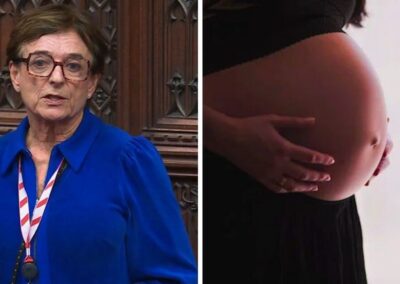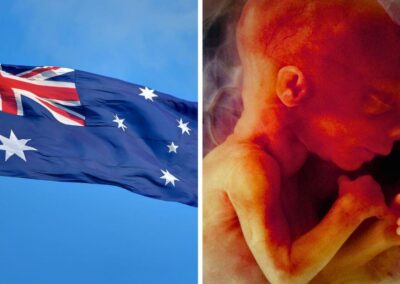Russian President Vladimir Putin has ordered the Government to do more to reduce the number of abortions in the country by offering more support to pregnant women.
Increased funding for organisations which offer effective support to women in crisis pregnancies and improving the provision of legal, psychological and medical assistance to pregnant women are outlined as key measures in Putin’s order, which was published on Saturday.
In addition, Prime Minister Mikhail Mishustin and regional heads of state have been tasked with reassessing the effectiveness of current abortion prevention strategies.
Pro-life measures appear to come as a result of population decline
Analysts suggest the recent changes in policy to, supporting pregnant women, come as a result of Russia’s falling population numbers. This year, the country’s population is predicted to decline by 352,500 compared to a decrease of 32,100 in 2019.
Russia’s population decline has been described as nothing short of a “catastrophe” by scholars who now warn that there soon may not be enough males even to populate the country’s armed forces or security services.
Support for abortion
In his attempts to boost the population, Putin has announced a range of measures aimed at supporting women, despite appearing to be personally supportive of abortion.
Ahead of a fourth Presidential term, Putin said: “In the modern world, the decision is up to the woman herself.
He continued: “Any decisions on restricting abortion in the future, must be careful, considered and based on the general mood in society and the moral and ethical norms that have developed in society.”
Abortion numbers fall
In response to high abortion rates and a falling population, in 2007, the Kremlin named abortion reduction as one of its key demographic policy priorities.
Since then, the Government have introduced a range of support measures for pregnant women.
In 2018, the most recent year abortion statistics are available for, the Russian Government reported the number of terminations was 567,183, this represents a 60% decrease when compared to the 1,423,711 abortions performed in 2006.
Last year, Russian Health Minister Veronika Skvortsova revealed that the significant drop in abortions had coincided with the opening of pregnancy support centres at maternity clinics and hospitals.
She told Russian news outlet, Tass, that around 1,500 centres had opened over the past 15 years.
This week, Deputy Health Minister Oleg Salagai told delegates at the Healthy Life Forum that the project is still “bearing fruit.”
He revealed that the number of abortions had decreased by nearly 30% over the past five years crediting the work of the Ministry of Health of the Russian Federation and public organizations.However, highlighting that there was still work to be done, he added: “These are big numbers, serious changes, but the number of abortions is still very high, and at the end of 2019, the number of abortions was approximately 523,000.”
Ongoing project
Over the next eleven years, the Russian Government has announced it will spend a minimum of 3.1 trillion rubles (£370.5 billion) on its demographic plan, which includes increased financial support for families with newborn children and improved support for female jobseekers.











